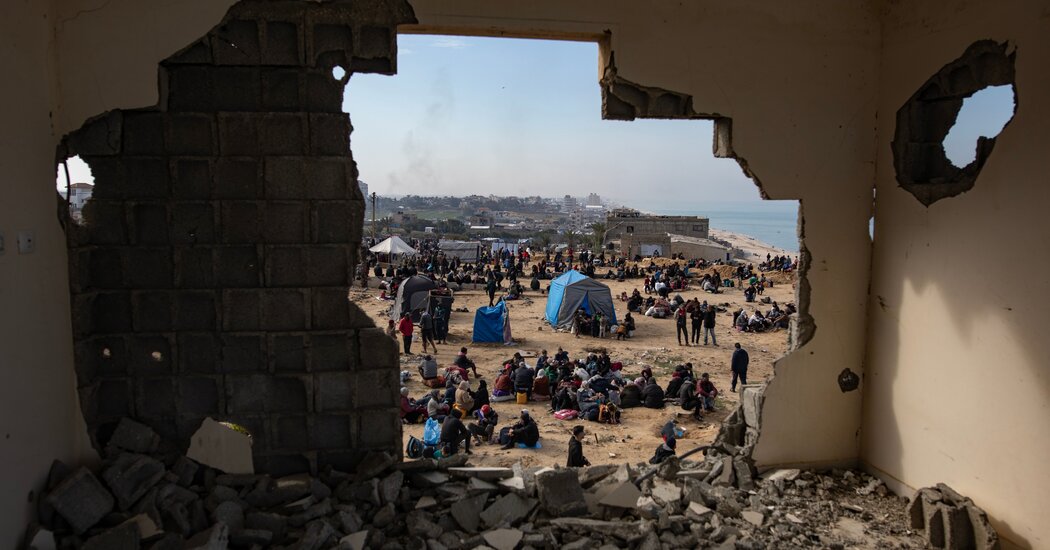It is unclear if Mr. Trump would try to use the $1.3 billion that Egypt is supposed to receive in annual aid as leverage to try to force it to accept more Palestinian refugees.
The fear of being driven from Gaza runs deep among Palestinians, who reject it as a replay of what they call the Nakba — or “catastrophe” in Arabic — the mass displacement of Palestinians from their homes in 1948 during the war surrounding Israel’s creation as a state.
Hundreds of thousands of Palestinians in Gaza are trying to return to their homes as the cease-fire between Hamas and Israel enters a second week. It is only the second pause in fighting between the two since Oct. 7, 2023, when Hamas led an attack on Israel that killed more than 1,200 Israelis. Since then, Israel’s military has killed at least 46,000 Palestinians, according to Gazan health officials, who do not distinguish between combatants and civilians. It has also destroyed thousands of homes and buildings in Gaza and killed many of Hamas’s leaders.
Most of the two million Palestinians in Gaza have had to flee their homes at least once. And though aid in recent days has increased, the humanitarian situation remains dire, with water, food and medicine running low and few working hospitals left.
Noura al-Awad, 29, and her family were some of those who stayed put in their homes in Gaza City for the last 15 months, persisting through airstrikes, a ground invasion and near-famine conditions because they were determined not to cede their land to Israel, she said in a phone interview on Sunday.
She vowed to outlast Mr. Trump’s plans, too.
“For one year and three months, we were attacked from all sides, we got starved and humiliated, we experienced killing, death and destruction, but we didn’t move south,” she said. “No way” would she leave, she said.
Reporting was contributed by Andrés R. Martínez, Iyad Abuheweila, Isabel Kershner and Rania Khaled.





